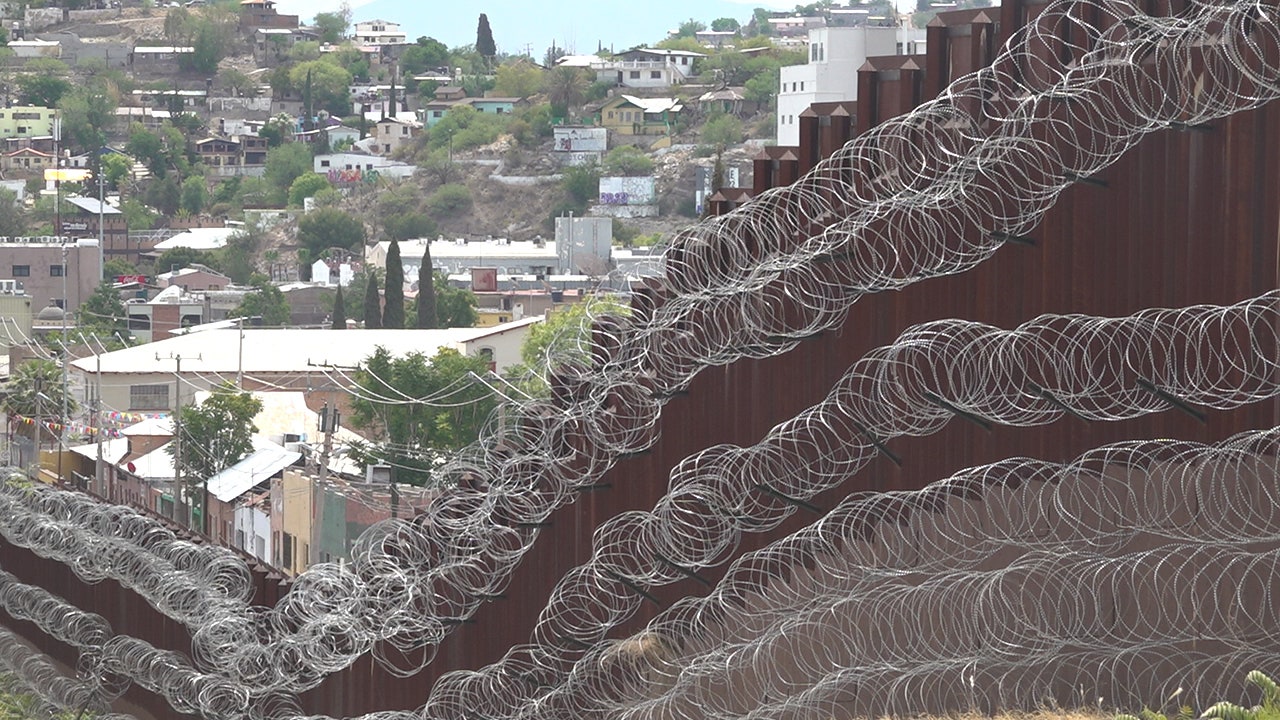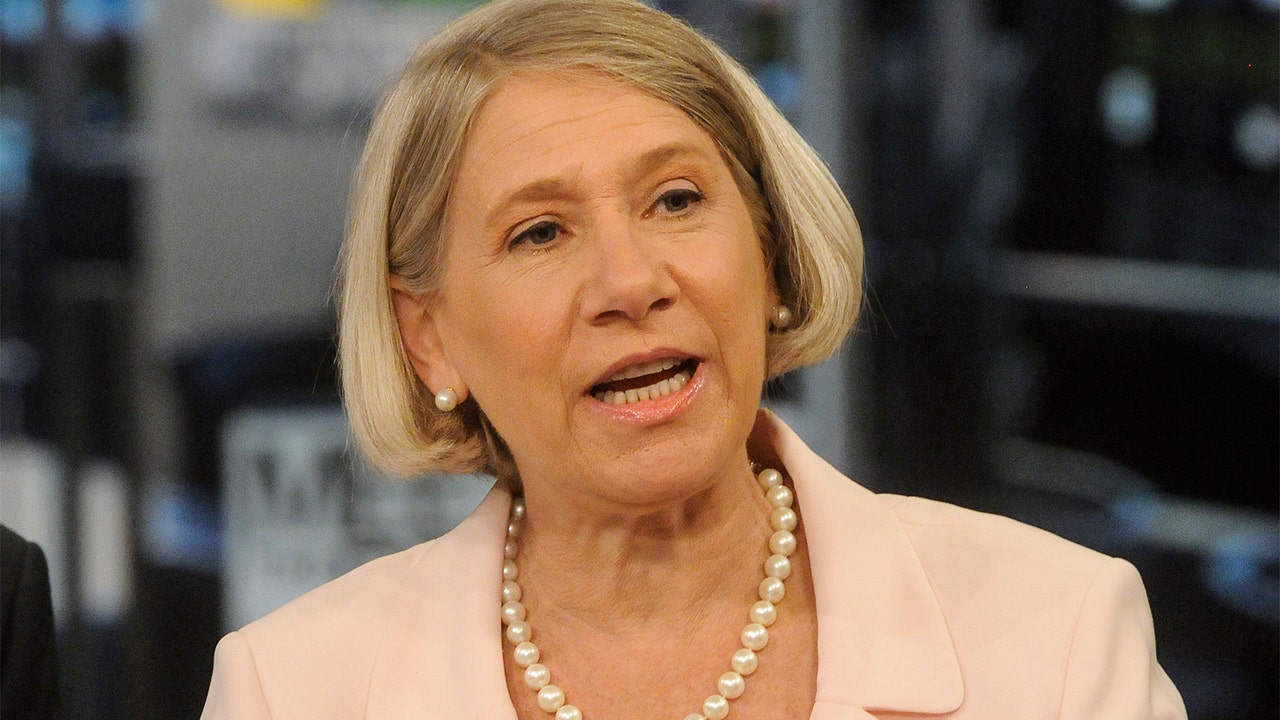US-Mexico border drug trade led by American smugglers
The U.S.-Mexico border has been closed since March 2020 because of the pandemic and it’s not known when it will reopen. However, it’s forcing cartels to change their drug trafficking tactics as they’re now recruiting American’s to do the job.
NOGALES, Ariz. – The U.S.-Mexico border has been closed to nonessential travel since March 2020, but Americans can still freely pass back and forth. However, the restrictions are changing the way cartels are smuggling drugs as they’re now hiring Americans to do the job for them.
“A big change we’re seeing is that 90% of the mules, the ones that are bringing the drugs into the U.S., are U.S. citizens,” said Santa Cruz County, Arizona, Sheriff David Hathaway.
Sheriff Hathaway said the border town of Nogales is typically very quiet. “I grew up in this town, I was born here, I went to the public schools and it’s a very peaceful town, very peaceful county. Our crime rates here are lower than the average for Tucson,” said Hathaway.
“A big change we’re seeing is that 90% of the mules, the ones that are bringing the drugs into the U.S., are U.S. citizens,” said Santa Cruz, AZ County Sheriff David Hathaway (Stephanie Bennett/ Fox News).
However, the cartels are continuously looking for ways to bring their drugs across, even during a global pandemic.
U.S. Customs and Border Protection Officials say they’re finding these drugs daily. Seizures of Meth and Fentanyl, the two most popular, are already surpassing or will surpass last years stats (U.S. Customs & Border Protection).
“The cartels are adaptive as long as there’s the demand here in the United States for the drugs they’re going to figure out a way to do it. They’re going under the border, there’s tunnels going under this town that have been there for 100 years. … They’ll get ultralight airplanes and fly over, they’ll go through the commercial ports of entry, but the most volume of the drugs goes right through the legal commercial ports of entry,” said Hathaway.
Hathaway says Nogales is the largest port of entry in the state, dealing with pedestrian, vehicle and commercial traffic. Since the border shutdown, tourism from Mexico has diminished, forcing many local businesses to close. However, the sheriff warns people who are traveling into Mexico to shop that they could be recruited to smuggle drugs.
FENTANYL SEIZURES AT THE BORDER IN MAY NEARLY 300% HIGHER THAN LAST YEAR
“The drug traffickers are opportunist and they’ll say if we can’t recruit the Mexican citizens because they can’t cross, then they’ll approach U.S. citizens so we warn people you know, if you’re going into Mexico to shop, you know there’s a possibility that somebody will try to recruit you to bring something back,” he said.
U.S. Customs and Border Protection officials say they’re finding these drugs daily. Seizures of meth and fentanyl, the two most popular, are already surpassing or are predicted to surpass last year’s stats.
Over fiscal year 2020, which runs from Oct. 1 to Sept. 30, the Tucson Field Office seized 1,296 pounds of fentanyl, compared to more than 1,550 pounds so far this fiscal year.
Over fiscal year 2020, which runs from Oct. 1 to Sept. 30, the Tucson Field Office seized 1,296 pounds of fentanyl, compared to more than 1,550 pounds so far this fiscal year. (U.S. Customs & Border Protection).
“We’ve been seeing a lot of internal body carriers,” said Edith Serrano, U.S. Customs & Border Protection, Tucson Field Office public affairs liaison. “On occasion, a few juveniles and you know people do of course try to attempt to cross the narcotics in strollers, with their children sitting on top of the packages, and in vehicles.”
The cartels are hiring in-person, online and through social media and typically offer big bucks.
“The money is enticing, but at the same time I think your life is worth more than trying to cross these drugs across,” said Serrano.
Border officials say they’re expecting these trends to continue at least until the restrictions lift and the border reopens again. (Stephanie Bennett/ Fox News).
Serrano says once these drugs enter the U.S. they travel fast. “About 4,000 pills, total one pound, so if you can imagine 4,000 pills somebody is bringing in, just one pound, I mean that’s 4,000 pills that’s been distributed throughout the United States.”
In Phoenix, 180 miles north, the Maricopa County Sheriff’s Office is also seeing an uptick in illegal drug activity, saying via email that its “Task Force is seeing drug trends related to Fentanyl Pills (M30s), Methamphetamines, Dimethyltryptamine (DMT), Psilocybin mushrooms, Lysergic acid diethylamide (LSD) and various marijuana/THC products. We continue to see these drugs being trafficked in vehicles with every more creative hiding locations,” said Lieutenant Dustin Labenz.
CLICK HERE TO GET THE FOX NEWS APP
For now, border officials say they’re expecting these trends to continue at least until the restrictions lift and the border reopens again.







